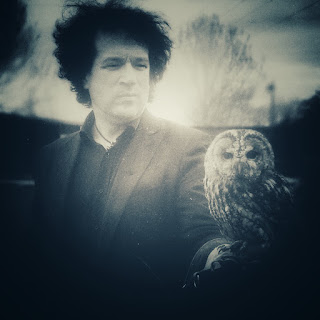Bowie makes good his disappearance in the video
for Lazarus (dir. Johan Renck, 2016)
The poet and critic Simon Solomon is right to refer the case of David Bowie back to Sylvia Plath's notorious claim that dying is an art, like everything else. For there was something very beautiful and stylized about his passing (as indeed there was about Plath's own exit from this world).
But what most philosophically fascinates about his death, apart from its obvious vitality and aesthetic appeal, is the manner in which he effected a disappearance and grasped the opportunity to die liberated from every identity and free of all stereotypes, in this way accomplishing what we might term (for want of another, slightly less Heideggerian term) an authentic death.
That is to say, one that had been imagined and carefully coordinated in every detail; one in which the mortal subject claimed his death for himself and affirmed his own dark singularity, becoming, as Bowie says, a blackstar, exerting an invisible and irresistible attraction and influence.
Bowie, in other words, accepted the challenge of death. He knew what it involved and made a choice. And, to his credit, he died at the most difficult time of all - which is to say at the right time, before his ideas ran dry and he had nothing left to say. How many of his contemporaries and fellow performers shamefully linger on - already dead-in-life, like zombies, unhappily full of self-assertion.
These people will, of course, eventually die, but they'll die too late and with biological banality. Unlike Bowie, their spirit and their virtue will not shine darkly after death. And because they do not know how to die and remain unwilling to disappear, they will never rise like Lazarus out of the ash with red hair.
Read: Sylvia Plath, 'Lady Lazarus', in Collected Poems, (HarperCollins, 1992): click here.
Play: David Bowie, 'Lazarus', from the album Blackstar (ISO Records, 2016): click here.

